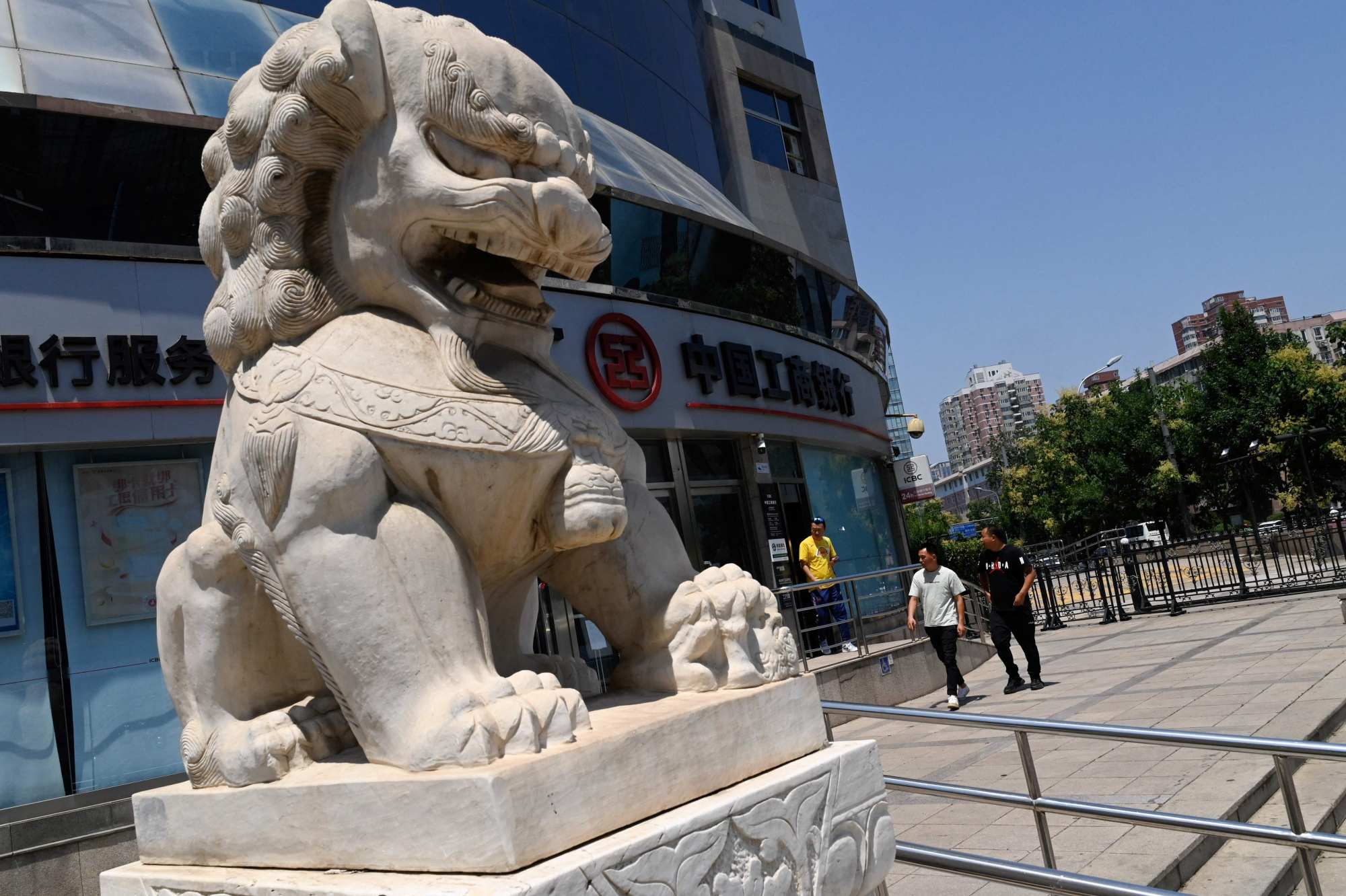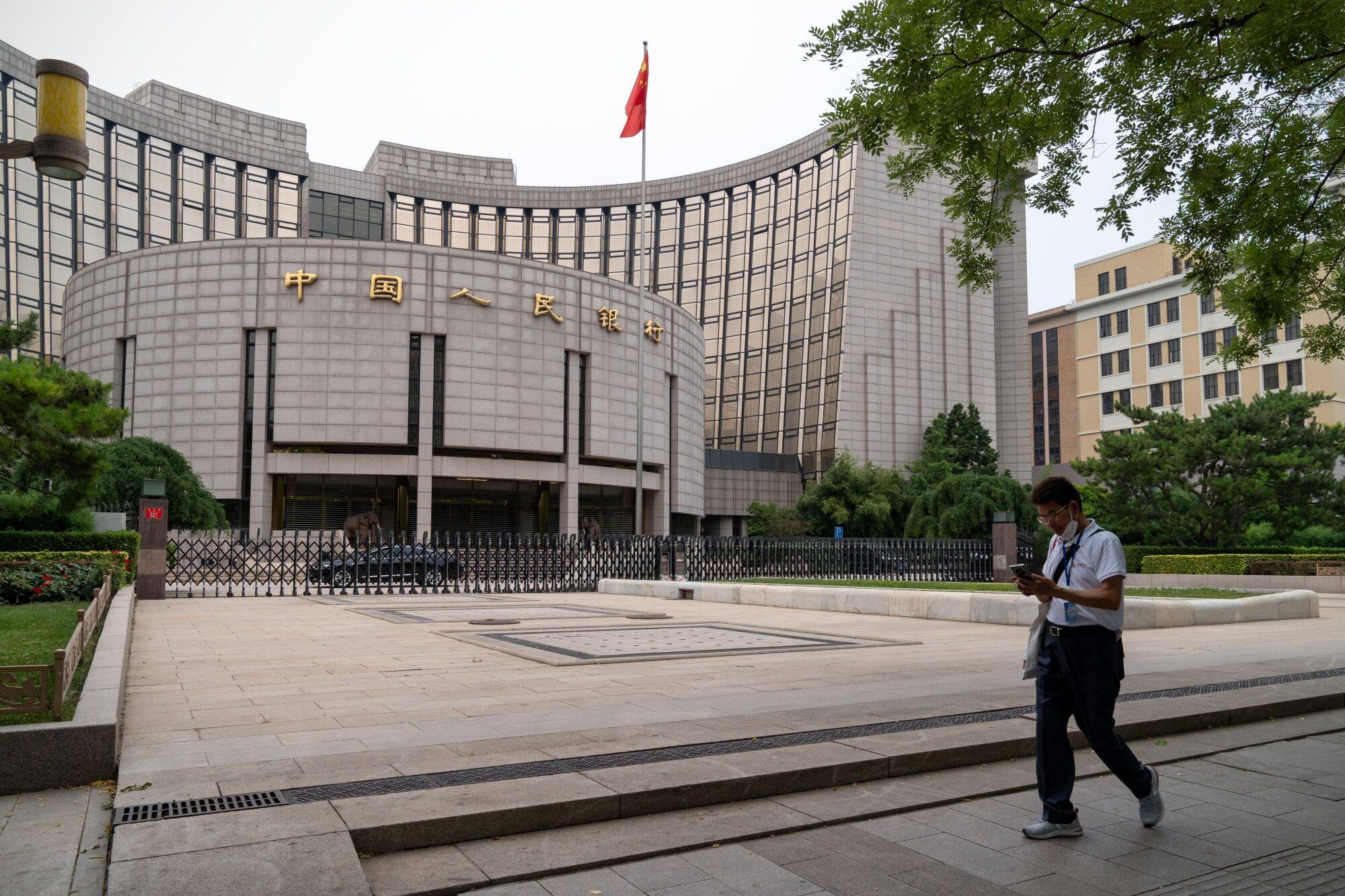“The government can’t just ask banks to step up without providing a solution to their issues,” said Shen Meng, a director at Beijing-based investment bank Chanson & Co. “Their profits may still look good on the surface, but if you take a deeper dive into their assets and bad loans, things won’t look good for long.”

China’s banks have been caught between the opposing demands of providing “national service” by supporting the property sector and distressed local governments, and their obligation to run a sound business. Boosting profits has almost become mission impossible for some.
Beijing ratcheted up pressure on the lenders even more last week to reverse the housing meltdown. Regulators are working on a draft list of firms eligible for bank support, while weighing a plan for lenders to offer developers unsecured loans for the first time. This is on top of a recent order for the banks to roll over local government debt at favourable terms to avert a crisis in that US$9 trillion market.
Authorities have signalled the banks have more to give. The Communist Party-controlled parliament recently said the financial sector’s profits still have room to fall. A readout last week urged banks to step up funding to complete housing projects and ease the “panicked expectations” of households.
Unlike Japan, China’s property crisis won’t lead to lost decades
Unlike Japan, China’s property crisis won’t lead to lost decades
The demands have been taking a toll on finances and operations. Net interest margins slumped to a record low of 1.73 per cent as of September, data showed. That is below a 1.8 per cent threshold regarded as necessary to maintain reasonable profitability. Meanwhile, bad loans have hit a new high, and a revenue growth streak since 2017 for some of the nation’s largest state banks may snap this year.
Shares of the big four state lenders including ICBC are trading near record low valuations of 0.3 times book value in Hong Kong. That is about the same levels US banks were trading at during the global financial crisis.

Chinese state-run banks are subject to government directions on how much to lend and to what sectors, especially during economic downturns. This guidance has become more frequent and sometimes contradictory this year, bankers said. Lenders risk being summoned by the People’s Bank of China should they miss loan targets, or punished by the National Administration of Financial Regulation for lending too aggressively, they said.
Other firms try to play ball by lending to local government financing vehicles (LGFVs), despite the high risk of default. About 80 per cent of new corporate loans at one big lender’s local branch in Sichuan province this year were extended to these LGFVs, an official said, betting that they can earn interest while delaying default risk via loan extensions.
Authorities have offered some relief to the banks, guiding them to trim deposit rates three times in the past year to ease margin pressures, and slashing reserve requirements twice this year to boost their lending capacity.
Why Hong Kong and mainland China buyers are acquiring prime Australian property
Why Hong Kong and mainland China buyers are acquiring prime Australian property
Those changes will not be enough to offset the lending rate cut and arrest a margin slide, according to Fitch Ratings. Bloomberg Intelligence expects the margin squeeze to deepen into 2024 and weigh on earnings, capping profit growth in the low single digits at best.
Goldman Sachs said China’s latest guidance for banks to step up financing for builders could push up their bad loan ratios for the sector by 21 basis points. JPMorgan Chase & Co. warned the push to extend unsecured loans “would be a risky move” and raises concerns about their national service and credit risks.
Some analysts say the banks may push back, just as they have much of this year. For example, bank loans to property firms fell year-on-year in the third quarter – the first time that has ever happened – despite government exhortations.
China urges banks to support property sector, but tide still against private firms
China urges banks to support property sector, but tide still against private firms
To assuage concerns on issuing, regulators may exempt bankers from accountability for bad loans given the high risks involved, people familiar said last week, adding that deliberations are ongoing and subject to change.
“The government wouldn’t want material volatility in the big lenders’ operations, and it’s unlikely that banks will be asked to save the property sector or LGFVs at any cost,” said Vivian Xue, director of financial institutions at Fitch Ratings. “After all, the big banks are all owned by the central government and they’re a key source of fiscal income.”
Bagikan Berita Ini














0 Response to "China’s property lifeline exposes banks to big losses, job cuts - South China Morning Post"
Post a Comment